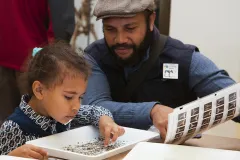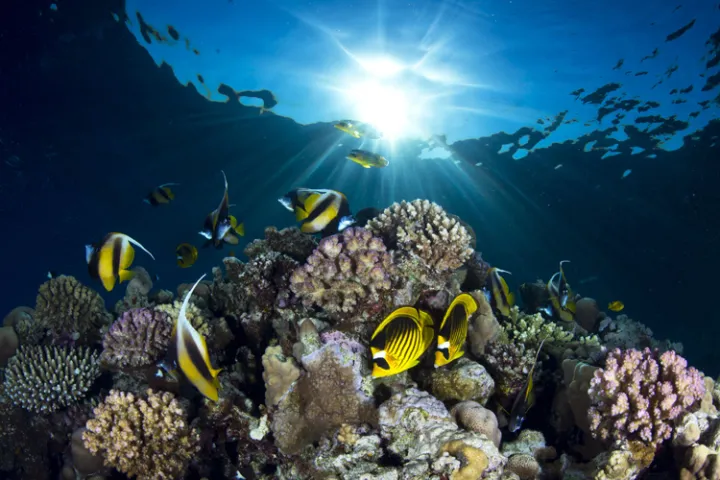World Ocean Day Events 2018

Celebrate World Ocean Day on Saturday, June 9th 2018 from 10:00am - 4:00pm at the National Museum of Natural History and explore how your family can keep our ocean plastic-free through activities for all ages.
- Connect. Explore how your family is directly connected to the ocean regardless of where you live.
- Dive in. Test your ocean skills through interactive, hands on activities.
- Talk to ocean experts. Meet scientists and community leaders to learn about local, positive ocean stories.
- Make a difference. Discover easy family choices that can have a big impact on keeping our ocean plastic free.
Register for this FREE event here!
What's Happening?
Smithsonian Recycling Challenge
Find out who in your family has the most recycling know how by practicing the ins and outs of recycling.
Aliens Invading on Plastic
What marine life can live on plastic? Many can, including organisms that could potentially reach new habitats and overtake native species. Chat with a scientist about how she studies these organisms in the middle of the Pacific Ocean.
Ocean Family Gameshow: Plastic Edition
Spin the wheel or play plinko to delve into the world of ocean plastic trivia with your family.
How to Engineer Bacteria to Clean the Ocean
Uncover what it takes to engineer bacteria to eat plastics in the ocean by designing ‘bacteria’ with two synthetic biologists. Discover how unlocking the secrets of DNA might be able to help us reduce plastic pollution.
Food or plastic?
If you were a seabird, could you spot the difference between food and plastic? Try your ‘beak’ at a simulation to discover what happens when plastic breaks up into tiny pieces. See how scientists are developing ways to separate microplastics from sand so they can be studied in Delaware.
Coral Café
What is coral and what do coral eat? Touch real coral skeletons to explore coral biology and learn how scientists are studying the changing diet of coral in the presence of plastic pollution.
Inside the Guts of Birds
Smells and looks like lunch but it could be plastic! Help us investigate the health of the ocean by dissecting a ‘bolus’ or indigestible pellet that is thrown up by young seabirds. Find out why animals are so attracted to plastics and what your family can do to help.
Ocean Friendly Lunch Box Hacks
Practice packing ocean friendly lunches for the whole family. Learn tips and hacks that can streamline lunch prep and help the ocean!
Ocean Magic
Watch ocean-themed magic tricks happen right before your eyes! Experience new and exciting ways to dive into the wonders of the ocean.
Mollusks in the Collection (1:00-4:00pm)
Explore local and exotic mollusks in the Smithsonian Collection with a resident Collections Specialist. Learn why the Smithsonian collections are so useful.
Ocean Story Hour (10:30am and 1:30pm)
Celebrate World Ocean Day with a special story hour that explores how your family is connected to the ocean. Create an ocean craft that shows you how to repurpose plastics and other materials.
Keeping Our Watersheds Clean
See a watershed in action and explore how it connects people living in the middle of the county to the ocean. Try your hand at matching the amount of time it takes for everyday items to decompose and come away with with the knowledge and resources to remove and prevent litter in your neighborhood. Facilitators speak Spanish.
Get Caught Engineering: Pollution Solution
What is the best way to clean up plastic pollution from the ocean? Design and engineer your own prototype using everyday items with your family in this hands-on Get Caught Engineering activity.


